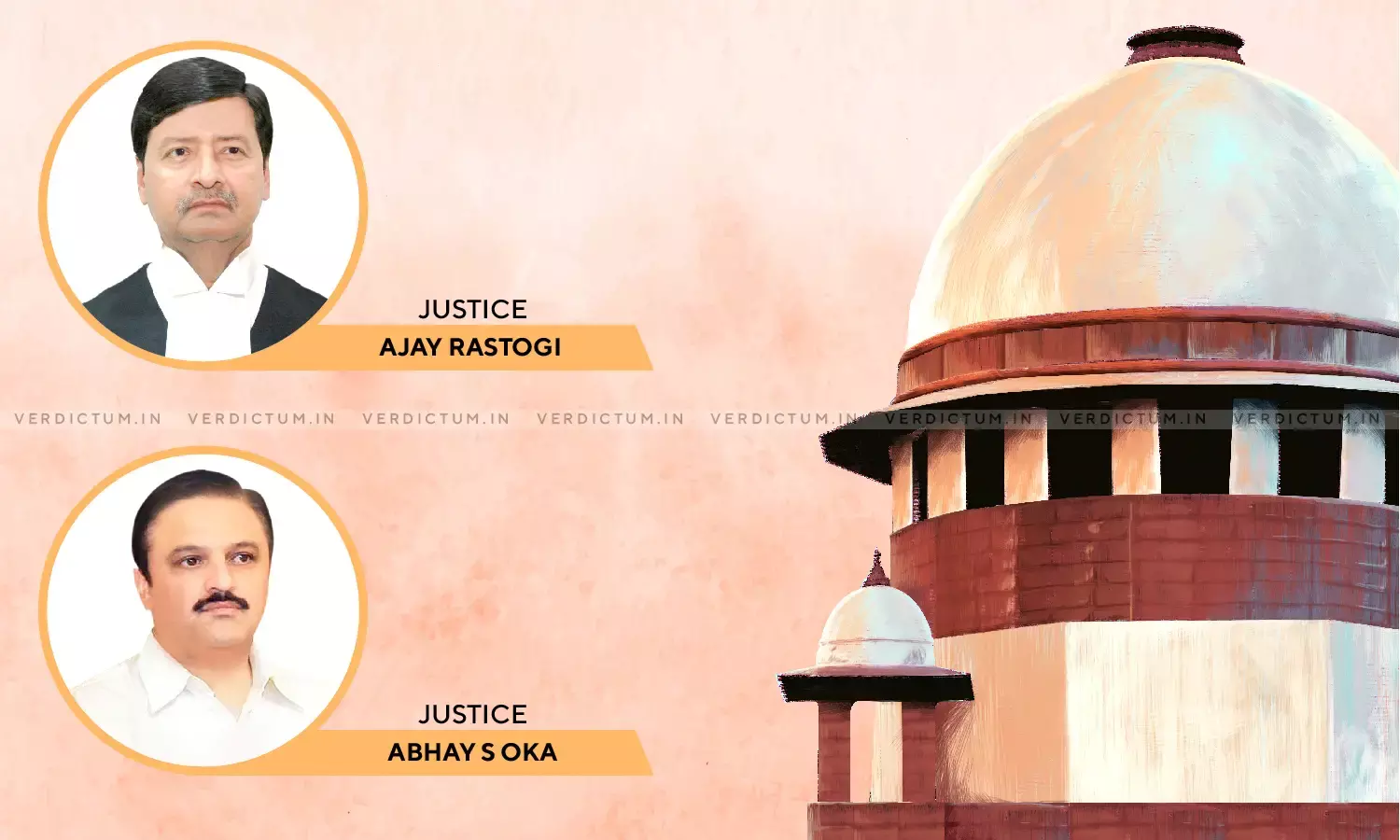Mens Rea/Actus Reus Not Essential Element For Imposing Penalty Or Damages For Breach Of Civil Obligations - SC Reiterates

A two-judge bench of the Supreme Court comprising of Justice Ajay Rastogi and Justice A.S. Oka has observed any default or delay in the payment of EPF contribution by the employer under the Employees Provident Fund & Miscellaneous Provisions Act, 1952 was a sine qua non for the imposition of levy of damages under Section 14B of the Act 1952 and mens rea or actus reus was not an essential element for imposing penalty/damages for breach of civil obligations/liabilities.
In this case, the establishment of the Appellants was covered under the provisions of the Act 1952. The Appellants had failed to comply with the provisions of Act 1952 and thus for non-compliance of the mandate of Act 1952, proceedings were initiated under Section 7A and dues towards the contribution of EPF for the intervening period were assessed by the competent authority and after adjudication, that was paid by the Appellant to the office of EPF. Thereafter, the authorities issued a notice under Section 14B of the Act 1952 to charge damages for the delayed payment of provident fund amount and called upon the Appellants to pay damages of Rs.85,548/-.
The Karnataka High Court under the impugned judgment held that once the default in payment of contribution was admitted, the damages as being envisaged under Section 14B of the Act 1952 were consequential and the employer was under an obligation to pay the damages for delay in payment of the contribution of EPF under Section 14B of the Act 1952, which had been challenged in the appeals before the Apex Court.
Counsel, Praveen Swarup appeared for the Appellants while Counsel, Archana Pathak Dave represented the Respondents before the Supreme Court.
The primary issue in this case was –
(i) Whether the breach of civil obligations or liabilities committed by the employer was a sine qua non for the imposition of penalty/damages or the element of mens rea or actus reus was one of the essential elements had a role to play and the authority was under an obligation to examine the justification, while passing the order imposing damages under the provisions of the Act 1952.
It was contended by the Appellants that the contribution of EPF could not be deposited and had not been looked into by the authority and the element of mens rea or actus reus was one of the essential elements which had not been taken note of by the authority while imposing damages under Section 14B of the Act 1952.
On the other hand, the Respondents submitted that mens rea was not an essential element for imposing a penalty for breach of civil obligations or liabilities and mere contravention of the provisions of the Act or default in making compliance with the mandate of law as regards the civil liabilities were concerned, mens rea or actus reus was not the requirement of law to be considered while imposing damages under Section 14B of the Act 1952.
The Supreme Court referred to the case of Chairman, SEBI v. Shriram Mutual Fund which had examined the scope and ambit of Section 15-D of SEBI (Mutual Funds) Regulations, 1996 regarding the imposition of penalty for certain defaults in case of mutual funds, and had examined the question as to whether mens rea was an essential element for imposing a penalty for breach of civil obligations and taking note of the binding precedent had held that mens rea was not an essential element for imposing penalty for breach of civil obligations or liabilities.
The Court further relied on the case of Union of India and Others v. Dharmendra Textile Processors and held that any default or delay in the payment of EPF contribution by the employer under the Act was a sine qua non for the imposition of levy of damages under Section 14B of the Act 1952 and mens rea or actus reus was not an essential element for imposing penalty/damages for breach of civil obligations/liabilities.
Thus, the Supreme Court found no substance in the appeals and accordingly dismissed them.
Click here to read/download the Judgment

